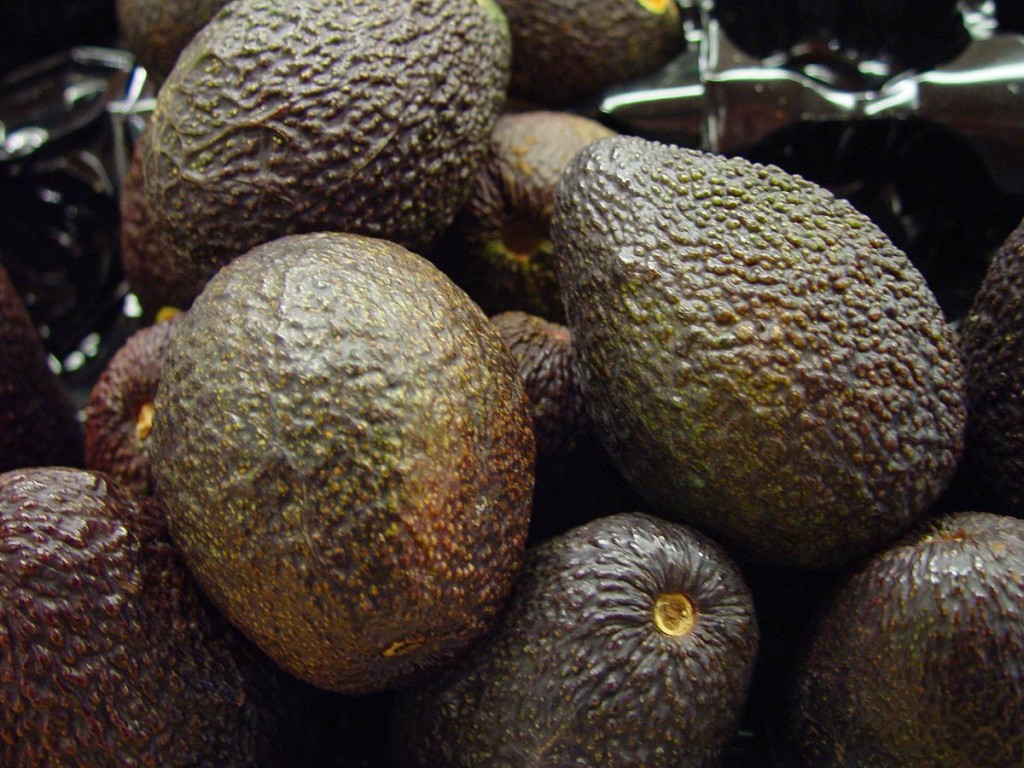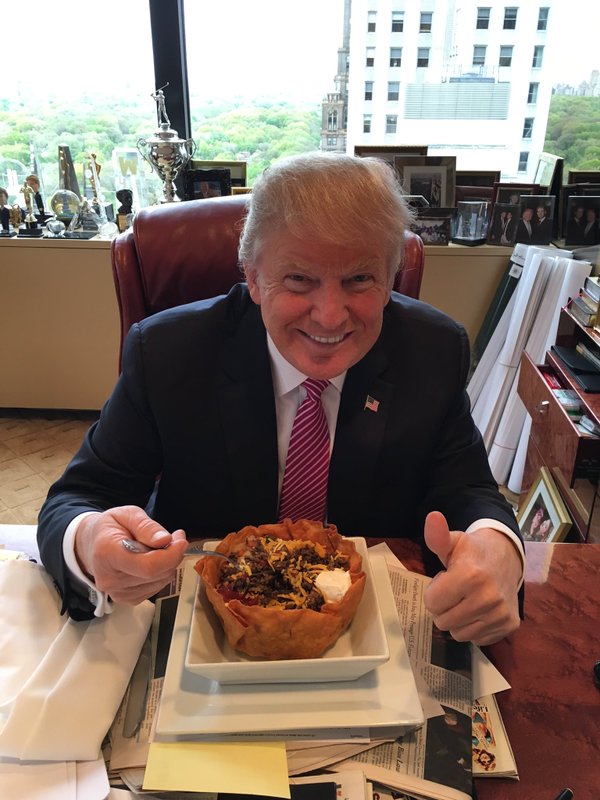
Avocado Obsessed
Avocados have become one of the most adored fruits in America. Used in salads, smoothies, sandwiches, sushi and even ice cream, the versatile food has taken over social media with more than 30,000 hashtags across Twitter, Instagram, Facebook and other platforms. In recent years diet trends have favored avocados for their “healthy fat” and “superfood” status, and demand has skyrocketed. However, the California drought, which severely hurt America’s harvest this year, and a labor strike at avocado exporter farms due to labor unrest in Mexico has created a massive avocado shortage. Prices of avocados have nearly doubled from last year—in an extreme case, cartons that were normally $40 are now nearly $120. Last October, Hass avocado imports from Mexico were nearly 35-45 million pounds a week. The number was just 8.5 million this fall.
Restaurants that rely on avocados as a central ingredient on their menus are concerned. The avocado crisis has already affected places like Panera Bread, which recently included in its menu this statement: “Due to a severe national avocado shortage, some of our menu items may be temporarily unavailable.” Taco establishments in San Diego have reported being without avocados for nearly four days. Chipotle has assured customers that it will not run out of guacamole–part of its guarantee not to increase prices due to cyclical changes in food costs. But in most cases, restaurants have begun to protest buying avocados at such high prices.
As the Super Bowl approaches, a day in which Americans eat more guacamole than any other day of the year (over 100 million pounds of avocados are used, 95% coming from Mexico), consumers worry about the effect this supply blip will have in the long term. Fortunately, avocado farmers in Mexico recently resumed picking, and avocado imports are returning to normal. However, even if guacamole still makes it to our Super Bowl party tables this year, the recent results of the US election have created a new complication for the future of avocados in America and more importantly, the future of US-Mexican trade overall.
The Worst Trade Deal Ever Signed
The North American Free Trade Agreement (NAFTA)–commonly referred to as the “the worst trade deal maybe ever signed” by US president-elect, Donald Trump–played a big role in making avocados a major cash crop of Mexico. Signed in 1994 by the US, Mexico and Canada, NAFTA eliminates tariffs on trade between the three countries. It has had many important effects, including transforming Mexico from a relatively closed economy to an export-oriented one. In the aftermath of the US presidential election, though, there are a lot of uncertainties about what will happen to US trade under Trump’s administration given his promises to renegotiate or withdraw from NAFTA as soon as he takes office. This brings up a question: on what basis does Trump consider NAFTA the ‘worst trade deal ever’ and how would scrapping the deal affect each nation?
Trump, along with many Americans, criticizes NAFTA for severely depressing the labor market and favoring Mexico. There’s some truth to this. As of 2010, trade with Mexico since NAFTA is believed to have caused a loss of 682,900 US jobs. Of course, this number cannot be attributed solely to the deal–unemployment caused by inflation and changes in exchange rates were also factors. And Trump fails to recognize that NAFTA created 6 million US jobs through the rapid increase in exports to an expanded pool of demanders. According to a study by the Congressional Research Service, many economists concluded that the deal has had little to no impact on overall employment, meaning that the deal neither led to the growth promised by NAFTA supporters nor the severe harm on the US economy that dissenters expected. America did, however, gain some advantages, including the opening up of markets for goods that are costly or impossible to produce in America.
Take avocados for example. Prior to NAFTA, California was the main producer of avocados. However, avocado farms were susceptible to seasonality. Americans only ate around 1.5 pounds of avocados each year. This number has now reached 7 pounds in the post-NAFTA world, with 75% supplied by Mexico. The trade agreement is responsible for putting avocados on the map of American cuisine today. Trump’s possible repeal of NAFTA would restrict avocado imports, causing a significant decrease in supply, which will lead to skyrocketed prices of an already high-priced good. On a macroeconomic scale, Trump’s protectionist policies will send a message to the rest of the world that America is stepping away from globalization and placing barriers on international trade at the expense of American consumers.

Selling to the Hegemon
It’s true NAFTA failed to alleviate some key issues of Mexico’s economy, such as labor minimum wages and drug cartels. It’s estimated that 1.9 million people in the agricultural sector lost their jobs and 4.9 million families were displaced due to an inflow of subsidized American crops. Despite this, NAFTA is undoubtedly the reason for Mexico’s immense trade expansion over the past 20 years. Mexico currently depends on American imports for a third of its income through the $316 billion worth of goods and services it exports to the US. Mexico’s ability to compete in the global market has been greatly strengthened since signing NAFTA, and it has even become the biggest car maker in Latin America as of 2014.
In the agricultural sector, many struggled as American crops flooded Mexican markets. But avocado farms in Mexico remained steady. Mexico has the perfect climate for harvesting avocados and has thrived off of the US’s recent avocado obsession. But this high demand comes with high costs. Avocado farming is responsible for a rapid increase in deforestation and an unprecedented use of water.
Not only do Mexican farmers have to provide to avocado-loving Americans, but many other countries have shown an interest in the fruit. Mexican exports to China alone have increased by about 200% annually. In order to meet this demand, avocado farmers in Mexico have contributed to a loss of 690 hectares of forest a year in order to provide room and sunlight for thriving avocado trees. Avocado orchards use twice as much water as a dense forest considering that each pound of avocado requires 272 liters of water (for comparison, tomatoes only use 34). What’s more, the lucrative crop has attracted the attention of Mexican drug cartels, who exploit avocado farmers for a share in the profits.Regardless of whether or not Trump is successful in repealing NAFTA, Mexico must work towards making avocado harvesting more environmentally and socially sustainable if it hopes to continue its mass production for years to come.
Overall, a high demand for Mexican goods has improved its economy immensely and created many jobs for the nation. If Donald Trump were to repeal the trade deal, it would lead to an abrupt end to the avocado boom, tragically affecting the agriculture sector that thrives off of the green gold’s success. More importantly, Mexican workers from all industries would become unemployed: Mexico relies on its Northern neighbor’s demands of Mexican products to fuel the economy. Unfortunately, thus far it seems Trump is immune to economic realities, and the future trade relationship between the two nations remains fragile and uncertain.
The views expressed by the author do not necessarily reflect those of the Glimpse from the Globe staff, editors or governors.







